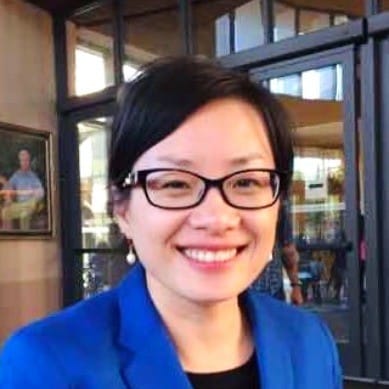When Will China Use Force to Reunite with Taiwan? Hu Xijin Explains His Position
- Analysis
 Juan Zhang
Juan Zhang- 06/24/2024
- 0
In a recent blog post, Mr. Hu Xijin, former editor-in-chief of the Global Times, explained his views on the delicate dynamics between peaceful reunification of the People’s Republic of China and Taiwan and the use of military force
“Our commitment to a peaceful resolution does not mean we will abandon the use of force or retreat in the face of extreme provocation,” Hu wrote. “Our efforts towards peaceful reunification are not out of fear of war, nor do they imply that we must avoid conflict under all circumstances.”
As Taiwan’s new leader, Mr. Lai Ching-te, took office on May 20, whether to use force to reunite with Taiwan or stick to peaceful reunification once again became a hotly-debated issue in China.
Since his campaign started in 2023, Beijing labelled Mr. Lai a “troublemaker” and “separatist,” describing him as “dangerous” and “pro-Independence”. Lai served as vice president under the previous Tsai Ing-wen administration and has signaled a tougher approach on the Cross-Strait issue. Three days after Lai took office, Beijing launched “punishment” drills around Taiwan and near the offshore islands which involved the army, navy, air force, and rocket force.
In an event held in Shanghai, Hu Xijin was asked whether he supported using force to reunify Taiwan and when he believed such force should be employed. His recent blog post is a more elaborate answer to that question.
“First and foremost, I hope the Taiwan issue can be resolved through peaceful means, avoiding war whenever possible. China has two core interests: one is to sustain peaceful development, enhance comprehensive national strength, improve people’s living standards, and advance overall modernization. The other is to achieve national reunification, fully realizing sovereignty and territorial integrity,” wrote Hu.
He pointed out that the enhancement of China’s comprehensive strength and promotion of modernization through peaceful means are long-term goals that China must relentlessly strive to achieve. Importantly, the process of strengthening China’s overall power continuously creates more favorable conditions for eventual reunification.
“The stronger we become, the less viable resistance to reunification will be, and separatist forces will ultimately be overwhelmed….. Although it may increase the time cost, it also enhances our comprehensive strategic stability and reduces the potential loss of life and property, aligning with the political interests of the state and the broadest interests of the people,” said Hu.
China’s most recent move on the Taiwan issue is a new high-profile policy announcement released on June 21. According to Xinhua News Agency, China’s Supreme People’s Court, the Supreme People’s Procuratorate, the Ministry of Public Security, the Ministry of State Security, and the Ministry of Justice jointly issued the “Opinions on Punishing Stubborn Taiwan Independence Separatists for Crimes of Splitting the Country and Inciting Splitting the Country According to Law“, which took effect on the same day of its issuance.
The “Opinions” address several key points, including lifelong prosecution of persistent Taiwan independence separatists, specified prison terms for Taiwan independence crimes (with the maximum penalty being death), provisions for issuing arrest warrants and taking effective measures to apprehend suspects at large, and the requirement for trials to be held in absentia if applicable, among others.
China published a list of “stubborn Taiwan independence separatists” as early as 2021. So far, the list includes 10 individuals, with Taiwan’s current Vice President Bi-khim Hsiao among them. In a separate commentary, Hu stated that he believes the new policy “will not only serve to deter but is also operationally feasible. It’s not just about issuing a notice; there will certainly be practical follow-up actions.”
Coupled with other laws and regulations, most notably the Anti-Secession Law passed in 2005, the “Opinions” is yet another significant step by China aiming to restrain Taiwan independence from a legal approach. A question for many pro-reunification figures in China is whether such legal methods will be sufficient or if a military option should remain available.
According to Hu, while hoping to resolve the Taiwan issue through peaceful means, avoiding war whenever possible, China must retain the option of military means to respond to Taiwan’s independence if “the Taiwan authorities dare to pursue de jure independence, and Washington crosses the red line by treating Taiwan as a ‘country’ and provocatively challenges mainland China.”
“If we were to avoid confrontation at any cost, the Taiwan issue would worsen, and China’s international reputation would be severely eroded. Our red lines would be constantly crossed, and we would lose the basic political credibility needed for strategic maneuvers with the U.S. and neighboring countries, potentially leading to a complete strategic collapse,” Hu further explained.
Thus, when it is necessary, “we must resolutely respond to Taiwanese independence with military means. Even if these actions entail losses and costs, we must act without hesitation,” Hu said. “This means we must maintain strong pressure, including military pressure, on the Taiwanese authorities and their supporters, ensuring they understand that crossing the mainland’s red lines will result in severe consequences,” stated Hu.
In his commentary, Hu pointed out that the decision on whether to pursue peaceful reunification or take military action regarding Taiwan should be made by China’s central government, as it has the most comprehensive information and coordination of national interests. He urged national unity and adherence to the central government’s guidance when that happens.
“Having witnessed many wars and upheavals and understanding their impact on the country and the people, I support the state’s firm stance on the Taiwan issue while hoping that peaceful reunification will become the main trajectory of the situation,” Hu concluded.
Author
-

Juan Zhang is a senior writer for the U.S.-China Perception Monitor and managing editor for 中美印象 (The Monitor’s Chinese language publication).







